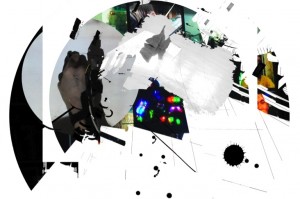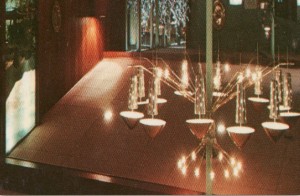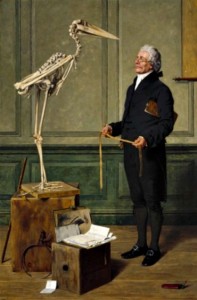Event
NOTE: Apologies – due to the tube strike, the cross-faculty seminar ‘on violence’, scheduled is postponed. Instead of an opening round-table, we shall have a rounding up table at the end of the series, on Wednesday 26th of March.
Wednesday 5th February, 1.00-3.00pm
Westminster Forum, 5th Floor, University of Westminster, 32-38 Wells Street, London W1T
Special Roundtable on Violence to launch the new Faculty Seminar Series.
Participants including David Cunningham, Sasha Darke, Harriet Evans, Debra Kelly, Ben Pitcher, Tom Moore and Andreas Philoppopolous-Mihalopolous
Chaired by Lucy Bond (Westminster)
Reading and Exhibiting Nature: An International Conference, Feb 7-9
Tagged as art, ecology, visual culture

February 7-9 2014
University of Westminster, 35 Marylebone Road, London NW1 5LS
Reading and Exhibiting Nature: An International Conference
In January and February 2014 Ambika P3, the flagship exhibition space at the University of Westminster, will present Out of Ice by visual artist Elizabeth Ogilvie. This new commission will involve environments created with ice and ice melt, constructions, films of ice systems, film of scientific expedition from Antarctica, and poetic film, much of it created through collaborations with Inuit in Northern Greenland, and reflecting on their deep and sustaining relationships with ice. The exhibition will portray the psychological, physical and poetic dimensions of ice and water and draw attention to ice processes. It will describe the presence of ice in the world from a human perspective in which the observational traditions of fieldwork will be combined with the artist’s trademark visual splendour.
In concert with the exhibition, the University of Westminster is convening ‘Reading and Exhibiting Nature’, a three-day conference examining how nature is being understood in contemporary cultural and artistic production. With a focus both in and beyond the polar regions, we will explore how artists and scientists are apprehending and representing natural phenomena, engaging with emerging non-human materialities and translating environmental data into aesthetic experience. The conference seeks to explore the shifting definitions of nature and how nature, including plants, animals, land, water/ice and weather inserts itself into human affairs and is represented culturally.
The ‘Reading and Exhibiting Nature’ conference is planned in association with the University of Westminster and co-hosted by Universities of Aberdeen and Edinburgh and Anchorage Museum, Alaska.
Keynote Address will be by Professor Tim Ingold, Chair of Social Anthropology at the University of Aberdeen
Full conference: Standard rate £200. One day rate £110; Student rate £90. One day rate £65.
Please see the draft programme and some hotel suggestions.

NOTE: Apologies – due to the tube strike, the seminar is postponed. We will arrange with Monika to reschedule this at another time.
Wednesday 5 February, 4pm
Room 106, University of Westminster, 32-38 Wells Street, London W1T
Monika Loewy, Goldsmiths
“The Problem with Unity: Body Identity Integrity Disorder, The Phantom Limb and Maurice Blanchot”
Body Identity Integrity Disorder (BIID) is a condition in which a person desires to amputate a limb because she feels that it does not belong to her body. A phantom limb can be identified when someone who loses a limb feels as though she still has one, which causes her pain. Together, the phantom limb and BIID syndromes foreground examples of individuals who cling to fictional concepts of wholeness as a result of their perceived incompleteness. This paper connects these situations to an idea central to poststructuralist thought: that language is composed of false images of unity that hide its negation, the eternal referent. The paper explores this relationship through the writings of Maurice Blanchot, arguing for a conceptual framework through which language can be seen as a physical and mental coping mechanism – a compensatory system that offers a tentative ‘presence’ to the unknown or the absent signified. Developing these thoughts through Blanchot’s essay “Orpheus’s Gaze” (1982), it is argued that like the text and the limb sufferers, Orpheus lives in a broken body that is both present and absent at once, implicating the referential structures of language in (traumatic) encounter with the physical body.
Autobiography and the Archive screening, Thurs 30th January
Tagged as archive, art, cinema, visual culture

A reminder of ‘Autobiography and the Archive’, a screening of work by Uriel Orlow, Miranda Pennell, and Sarah Purcell exploring the archive, collective memory, and personal history, curated by Mnemoscape for our regular partners at the Whitechapel Gallery and sponsored by the Institute. The screening is from 7-9pm on Thursday 30th January 2014, tickets £8.50/£6.50 concessions. Flier attached here: MS — Autobiography and the Archive (1).
The screening will be preceded by a drinks reception in the Creative Studio at the Whitechapel to celebrate the publication of the Journal of Visual Culture’s ‘The Archives Issue’. The special issue features contributions from Sas Mays and Marquard Smith, alongside Basel Abbas and Ruanne Abou-Rahme (with Tom Holert), susan pui san lok, Uriel Orlow, Chris Horrocks, Shezad Dawood (and Mark Bartlett), Nina Lager Vestberg, Gary Hall, and Trevor Paglen and Juliette Kristensen.

The Queer London Research Forum, along with the University of Westminster LGBT network, is organising a series of events as part of the celebrations for LGBT History Month. Places are free, but need booking in advance. You can register by emailing: queerlondonresearchforum@gmail.com, stating which event(s) you’d like to attend.
The Ageing Queer Populations of London
Monday 17th February, 7pm
The Boardroom, University of Westminster, 309 Regent Street
This panel discussion will explore the challenges, opportunities and difficulties facing London’s ageing queer populations. How do older queer populations experience London and how do they read it differently? In part, the event will also consider how soap operas offer a frame through which London’s ageing queer populations might understand the city and its issues. Speakers for the event include Kate Hancock (Opening Doors London), Dr. Nicola Humberstone and others (tbc). The event will be followed by a wine reception.
Screening of Touch of Pink (2004), followed by a Q&A with writer and director Ian Iqbal Rashid.
Tuesday 18th February, 7pm
Lecture Theatre, University of Westminster, 4-12 Little Titchfield Street
London’s Queer Literatures
Friday 21st February, 8pm
Room 451, University of Westminster, 309 Regent Street
For this event we will be joined by a number of writers whose work engages intricately with the relationships between London and queerness, each of whom will be reading from their work. We’re excited to welcome Jonathan Kemp (London Triptych, The Penetrated Male Body), Neil McKenna (Fanny and Stella, The Secret Life of Oscar Wilde) and others (tbc). Preceded by a wine reception in the Regent Street foyer at 7pm.
Further details of these events, including biographies of the participants, can be found on the Queer London website (www.queerlondonforum.co.uk) in the ‘LGBT History Month’ section.

Our own Alex Warwick, co-editor of Jack the Ripper: Media Culture History, will be introducing John Brahms’ 1944 version of The Lodger as part of the BFI’s Gothic Season on Monday 20th January, 8.45 pm.
Get your ticket here.
Reminder: Kreider + O’Leary, Jan 17th
Tagged as Architecture, art, cinema, visual culture

Kreider + O’Leary, ‘Ways to Cut the Earth Open’
Friday 17 January, 7pm
The Old Cinema, University of Westminster, 309 Regent Street
‘Ways to Cut the Earth Open’ is a cross-platform survey that examines a number of sites recently explored by Kreider + O’Leary in their nomadic practice. Using the sectional cut and the filmic splice as starting points they explore strands from their recent site-based works to thread together narratives of place and displacement. Predicated on an aesthetics of response while engaging with the complexity inherent in a given site, their work is both a form and act of communication: therefore, and necessarily, clouded by ambiguity. This prompts a critical investigation into the role of ambiguity for creative practices that relate to site, including writing and the moving image.
Kreider + O’Leary are a poet and architect who collaborate to make performance, installation and time-based media work in relation to sites of architectural and cultural interest. Since 2003, they have worked collaboratively to construct work in prisons, churches, military sites, film locations and desert environments, as well as in more traditional gallery venues across the UK, Europe, the US, Australia, and Japan. Their work ‘Light Vessel Automatic’ was exhibited at Performing Architecture at Tate Britain in February 2013. They are currently exhibiting a new work entitled ‘Edge City’ at the Lisbon Architecture Triennale.
Visit: http://www.kreider-oleary.net/
All welcome
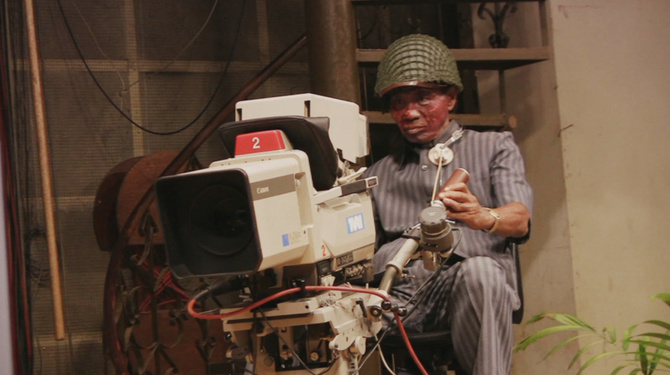
Social Sciences and Humanities Faculty Seminar Series: On Violence
All seminars will be held on Wednesdays, 1.00-3.00pm
Westminster Forum, 5th Floor, University of Westminster, 32-38 Wells Street, London W1T
February 12th 2014
Zoe Norridge (Kings), “The Enduring Violence of Images: Photography in Rwanda after the 1994 Genocide”
February 19th 2014
Paola Forgione (Pavia), “The Crime of Genocide Denial”
February 26th 2014
Michael Dutton (Goldsmiths), “Becoming Political: My China”
March 5th 2014
Kimberly Hutchings (LSE) and Elizabeth Frazer (Oxford), “Reflections on politics and violence”
March 12th 2014
Daniella Naj (Queen Mary), “Different Shades of Violence: The Portrayal of Wartime Female Identity in International Criminal Tribunals”
March 19th 2014
Illan Wall (Warwick), “On Crowds”
March 26th 2014
Roundtable on Violence, with participants including David Cunningham, Sasha Darke, Harriet Evans, Debra Kelly, Ben Pitcher, Tom Moore and Andreas Philoppopolous-Mihalopolous
Chaired by Lucy Bond (Westminster)
Archives for the Future conference, March 29th
Tagged as archive, art, visual culture
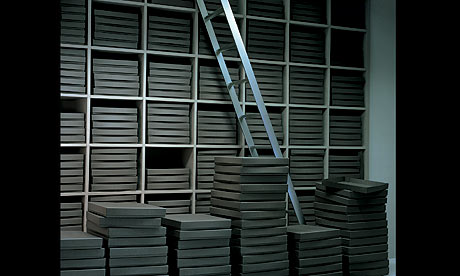
Archives for the Future: An Art and Visual Culture Conference
Saturday 29th March 2014, 9.30-5.00
Fyvie Hall, University of Westminster, 309 Regent Street, London W1B 2HW
Organised by Mnemoscape with the support of the Institute for Modern and Contemporary Culture.
Keynote Speakers: Francis Gooding (Birkbeck) and Uriel Orlow (Westminster)
Archives are becoming increasingly fetishized and (an)aestheticized in contemporary art practice and academic discourse. This conference comes out of a shared sense of frustration at this. In response, it intends to explore the present and futuristic potential embedded in the archive. Archives have generally been considered as conservative institutions aimed at preserving the past in the present – and so perpetuating the traditional structures of power. In contrast, we are interested in bringing to light the generative and creative side of the archive, what Derrida has defined as its ‘institutive’ power. How can archives be used to generate the ‘new’ and to convey possible alternatives to the present status quo? How can we turn archives from historical records into instruments of future planning and agencies of radical thinking? Is it possible to build an archive which works as an open space of imagination and a mean of projection into the future? Is it possible to archive the future to come and, at the same time, to remain open to the unpredictable and the unknown?
Further details and programme at: http://archivesforthefuture.wordpress.com/
For more information about the conference, please contact the conveners, Elisa Adami and Alessandra Ferrini at mnemoscape@gmail.com

There will be drinks and nibbles at the Whitechapel Gallery (5:30pm onwards) on Thursday 30th January 2014 to celebrate the publication of the Journal of Visual Culture’s ‘The Archives Issue’. The special issue features contributions from Sas Mays and Marquard Smith, alongside Basel Abbas and Ruanne Abou-Rahme (with Tom Holert), susan pui san lok, Uriel Orlow, Chris Horrocks, Shezad Dawood (and Mark Bartlett), Nina Lager Vestberg, Gary Hall, and Trevor Paglen and Juliette Kristensen.
The launch will be followed (at 7-9pm, tickets £8.50/£6.50 concessions) by ‘Autobiography and the Archive’, a screening of work by Uriel Orlow, Miranda Pennell, and Sarah Purcell exploring the archive, collective memory, and personal history, curated by Mnemoscape (ex-MA students in the IMCC, Elisa Adami and Alessandra Ferrini).

Call for Papers: Football, Fiction, and Culture
Kingston University, June 19-20 2014
The aim of this event is to examine the culture that develops around football, with particular focus upon the influence of the sport on other cultural media. Football is a prominent part of contemporary culture, and the strong influence that it has on social and political identities is often reflected in wider cultural production. Despite this, it is sometimes argued that football is an example of low or “mass” culture, removed from “high” cultural forms. This event will interrogate this viewpoint and attempt to demonstrate the sport’s influence upon a wide variety of cultural forms. We welcome abstracts examining any aspect of the role that football plays in cultural production.
Conference fees are yet to be decided, but our aim is make this an affordable event. We also hope that presenters will join us afterwards to watch a World Cup match or two.
Please send abstracts to the event organisers, Dr Anthony May (Kingston University) and Dr Christopher Daley (University of Westminster) at: footballfictionandculture@gmail.com.
The deadline for abstracts is 28th February 2014. Papers should be the standard 20 minutes and panel proposals should consist of three speakers.

Materialisms Old and New: London Reading Group
Westminster Forum, 5th Floor, 32-38 Wells Street, London, W1T 3UW
The ‘Materialisms Old and New’ reading group organise regular meetings to discuss both old and new materialist understandings of markets, rationalities, agency, contingency, power and governance. This is not a lecture course so we will be mixing up the texts and approaching key or interesting readings in an informal and flexible way, with a brief introduction by one of the group. The next two meetings are:
Thursday 30 January 2014, 6.30-8.00 pm
Michael Callon et al., Acting in an Uncertain World: An Essay on Technical Democracy
Introduced by Michele Ledda (University of Westminster).
Wednesday 19 March 2014, 6.30-8.00 pm
William Connolly, The Fragility of Things: Self-Organizing Processes, Neoliberal Fantasies, and Democratic Activism
Introduced by David Chandler (University of Westminster).
Meetings are open to all. If you would like to be added to the working group mailing list, please contact David Chandler at d.chandler@wmin.ac.uk.
Sponsored by the Centre for the Study of Democracy, University of Westminster and the Centre for Media & Culture Research, London South Bank University.
Dr Who’s The War Games, January 22 2014
Tagged as law, science fiction, television
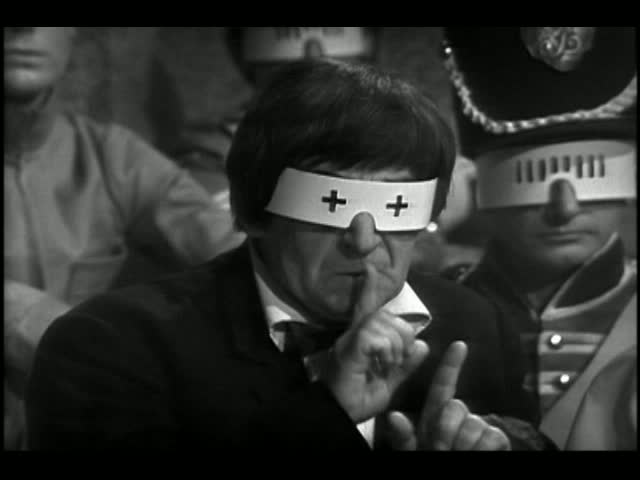
Wednesday 22 January 2014, 2.30-4.30 pm (please note change of time)
Room 2.01, School of Law, Little Titchfield Street
“A turning point for Dr Who: the War Games Revisited”
The seminar will comprise an introduction from Danny Nicol, a screening of the pivotal episode 10 of Dr Who’s The War Games (1969) and will be followed by a discussion.
Kreider + O’Leary, ‘Ways to Cut the Earth Open’
Friday 17 January, 7pm
The Old Cinema, University of Westminster, 309 Regent Street
‘Ways to Cut the Earth Open’ is a cross-platform survey that examines a number of sites recently explored by Kreider + O’Leary in their nomadic practice. Using the sectional cut and the filmic splice as starting points they explore strands from their recent site-based works to thread together narratives of place and displacement. Predicated on an aesthetics of response while engaging with the complexity inherent in a given site, their work is both a form and act of communication: therefore, and necessarily, clouded by ambiguity. This prompts a critical investigation into the role of ambiguity for creative practices that relate to site, including writing and the moving image.
Kreider + O’Leary are a poet and architect who collaborate to make performance, installation and time-based media work in relation to sites of architectural and cultural interest. Since 2003, they have worked collaboratively to construct work in prisons, churches, military sites, film locations and desert environments, as well as in more traditional gallery venues across the UK, Europe, the US, Australia, and Japan. Their work ‘Light Vessel Automatic’ was exhibited at Performing Architecture at Tate Britain in February 2013. They are currently exhibiting a new work entitled ‘Edge City’ at the Lisbon Architecture Triennale.
Visit: http://www.kreider-oleary.net/
All welcome
Wednesday 4 December, 5.30-8.30pm
Centre for Useless Splendour (previously The Swan public house), opposite Stanley Picker Gallery, Mill Street, Kingston upon Thames, KT1 2QJ.
Centre for Useless Splendour Reading Room Launch Event, School of Fine Art, Kingston University
5.30pm In Conversation: John Beck & Matthew Cornford will be discussing their new publication The Art School and The Culture Shed with Dean Kenning.
6-8.30pm Opening Reception: Reading Room is a temporary exhibition in the Stanley Picker Gallery Lobby which brings together publications commissioned by the Centre for Useless Splendour since its establishment in 2010 and launches new publications from Esther Windsor, Mark Greenwood, Roderick Harris, Enda Deburca & John Russell, Laura Cull & Simon O’Sullivan, John Beck & Matthew Cornford. The exhibition also plays host to a new sculptural commission from artist duo Ox Art.
http://www.stanleypickergallery.org/news/centre-for-useless-splendour-reading-room-december-2013/
Southern Visual Legacy seminar, Weds 27th
Tagged as cinema, memory, photography
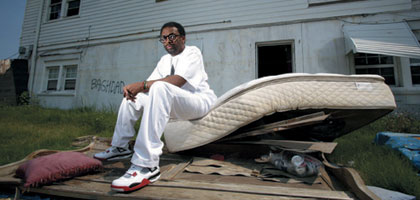
Wednesday 27 November, 4.00 pm
Room 106, University of Westminster, 106 Wells Street , London W1T 3UW
Christopher Lloyd, Goldsmiths, University of London
‘Looking at the “Southern Visual Legacy” in Spike Lee’s When the Levees Broke’
What are we to do with images of death that remind us of, and insist that we recall, other deathly cultural memories? What ethical obligations do we have to see death in larger ocular frameworks? These broad questions frame my analysis, which looks at a selection of photographs shown in Spike Lee’s documentary When the Levees Broke. Charting Hurricane Katrina and her aftermath, the film reveals the biopolitical life (and death) of Southerners in New Orleans and the Gulf region. More specifically, African-American life is revealed by Lee to be precariously entwined in the region’s historical and cultural contours. The images of African-American death that we see in the documentary, I argue, trigger visual memories of other pictures of corporeal trauma from the region’s past. If, as Katherine Henninger argues, ‘photographers and photographs in the South constitute a vast visual legacy: a complex series of continuities and ruptures that help shape southern identity itself’, then we must attend to such connections across Southern visual culture. My paper aims to contribute to this process, illuminating some of the memorative links between the photographs of dead black New Orleanians in When the Levees Broke with, particularly, lynching photographs and the image of Emmett Till in his coffin. In making explicit the ‘Southern visual legacy’ of Lee’s film, we might not only contribute insight into the debates on Southern identity and regionalism in the twenty-first century, but also signal ways of reading images of African-Americans through broader historical and cultural frames.
Important: Historical Novel symposium change of venue, Dec 3rd
Tagged as London, novel, radical philosophy

Because of the projected national university strike on December 3rd, the Historical Novel of the Contemporary Symposium scheduled for that afternoon will now be run as an independent event to be held in the downstairs space at the Carroll / Fletcher Gallery in central London. We are extremely grateful to Carroll / Fletcher for the generous offer to host.
Revised details as follows:
The Historical Novel of the Contemporary: A Symposium
Tuesday 3rd December, 2-6pm
Carroll / Fletcher Gallery, 56 – 57 Eastcastle Street, London W1W 8EQ
Speakers: Emmanuel Bouju (Rennes), David Cunningham (Westminster), John Kraniauskas (Birkbeck), Fiona Price (Chichester), Leigh Wilson (Westminster)
The subject of a revival in recent decades, in both its ‘literary’ and ‘popular’ forms, for Georg Lukács the historical novel was, above all, that which narrated the ‘pre-history of the present’. Discussing authors ranging from Roberto Bolano to David Peace, Hilary Mantel to Wu Ming, this afternoon symposium considers the historiographic and political forms of the historical novel today as it might narrate the pre-history of our own contemporary.
Medics, Monsters and Mash-ups seminar, Nov 20th
Tagged as gothic, London, science, technology

Centre for the Study of Science and Imagination (SCIMAG) Seminar
Wednesday November 20, 3.30-5pm, Room 219 Wells Street
Medics, Monsters and Mash-ups: Gothic 2.0
Anthony Mandal (Cardiff University)
“Humanity 2.0 is an understanding of the human condition that no longer takes the ‘normal human body’ as given. On the one hand, we’re learning more about our continuity with the rest of nature—in terms of the ecology, genetic make-up, evolutionary history. On this basis, it’s easy to conclude that being ‘human’ is overrated. But on the other hand, we’re also learning more about how to enhance the capacities that have traditionally marked us off from the rest of nature.” — Steve Fuller, Auguste Comte Chair in Social Epistemology, Warwick.
At the end of November 2012, Anthony Mandal won a commission through the AHRC’s REACT Books & Print initiative. Since January 2013, he has been working as lead academic partner with Bristol-based creative company, SlingShot, on Jekyll 2.0: Embodying the Gothic Text, to create a pervasive media experience that draws on the narrative and themes of Robert Louis Stevenson’s gothic masterpiece, Jekyll and Hyde (1886). The core of the project addresses the fundamental questions of Jekyll and Hyde: What makes us human? Do our minds control our bodies or are we shaped by our urges, compulsions and appetites? Will technology radically transform us into a new organism, ‘Humanity 2.0’? Such questions are nothing new: during the 19th century, the cultural implications of emerging theories of identity and the dominance of science were explored by numerous works of literature. Drawing on the gothic tradition, the project transforms reading into play, using participants’ bio-data (breathing, heart-rate, galvanic skin response) to shape their experience in uncanny ways.
Jekyll 2.0 will be a location-based pervasive media adaptation of Stevenson’s novel, reclaiming its transgressive power and reframing its central themes for the age of the bio-hacker. Neither a game nor a story, Jekyll 2.0 adapts a classic literary book using 21st-century technology to explore whether ‘humanity’ is a stable and meaningful concept or simply a convenient construction. As such, it merges linear fictional ‘narrative’, the interactivity associated with street gaming and the technological uncanny of bio-sensory feedback. Anthony’s talk will offer an overview of how the project is merging contemporary bio-technology with classic gothic preoccupations in order to create an immanent experience intended to be both entertaining and thought-provoking. The talk will also reflect on the methodological and conceptual questions that are emerging from current debates on creativity and technology in the early twenty-first century.
Dr Anthony Mandal (mandal@cardiff.ac.uk) is Reader in English Literature at Cardiff University where he is also Director of the Centre for Editorial & Intertextual Research.
Expanded Territories seminar, Dec 5th
Tagged as Architecture, ecology, science, Theory, Urban
Thursday 5 December, 12.30 – 14.00
Room M324, 35 Marylebone Road, London NW1 5LS
Measurement as Argument:
Planetary Constructions, PostNatural Histories, and the Will to Knowledge
Seth Denizen, Anna-Sophie Springer, Etienne Turpin
Organized by Lindsay Bremner
In this Expanded Territories seminar, Denizen Springer and Turpin will consider the relationship among the construction of systems of thought, our knowledge of the Earth System, and what Michel Foucault, following Nietzsche, describes as the will to knowledge. By examining several key episodes in the mid to late nineteenth century, including Antonio Stoppani’s argument for an “Anthropozoic” era, Vasily Dokuchaev’s proposal for a soil science distinct from geology, Franz Wilhelm Junghuhn’s early cartography of Java, and Alfred Russel Wallace’s theory of biogeographical distribution, they observe how measurement as argument has advanced our understanding of the Earth system in its manifold complexity. Because these systems of thought are not given, but produced, they suggest “what real struggles and relations of domination are involved in the will to knowledge.” As the Anthropocene as an object of knowledge is being constructed by stratigraphers and geologists, a series of affinities connecting measurement, aesthetic practices and the production of evidence can be discerned. How measurement as argument will challenge our inherited views of the architectural object in the Anthropocene remains to be seen; what is evident already is that this will to knowledge frames both our perception of the world and our capacity to change it.
Seth Denizen is a designer and researcher who currently teaches in the Division of Landscape Architecture at Hong Kong University. Anna-Sophie Springer is a writer, curator, and editor and co-director of the independent press K. Verlag in Berlin, Germany. Etienne Turpin is the founder and director of anexact office in Jakarta, Indonesia, and author of Architecture in the Anthropocene, Encounters among Design, Deep Time, Science and Philosophy.
Call for Papers: The Mediated City, LA, Oct 2014
Tagged as Architecture, technology, Urban

The Mediated City, Part Two – Los Angeles
Woodbury University, Los Angeles , October 1-3 2014
Keynote Presentation: Kenneth Frampton
Taking as its starting point the 50 year anniversary of Marshall McLuhan’s Understanding Media and the idea of “the global village”, the conference aims to bring people from diverse backgrounds together around the issue of the modern city.
Deadline for abstracts February 15th; Deadline for full papers / detailed proposals June 15th


The Institute for Modern and Contemporary Culture
University of Westminster Department of English, Linguistics and Cultural Studies
32-38 Wells Street, London W1T 3UW. United Kingdom.

